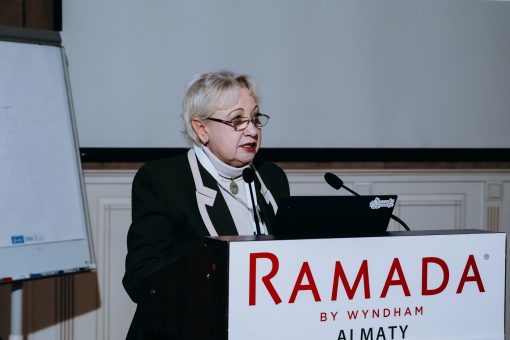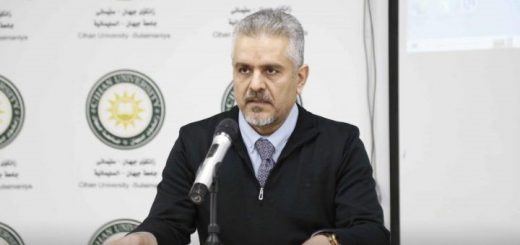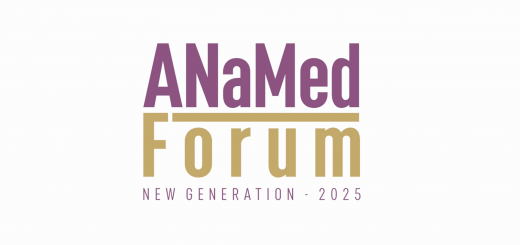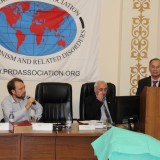Somatoform Disorders: Modern Approaches to Diagnosis and Treatment
On February 20, 2025, in Almaty, a multidisciplinary expert working meeting was held with the participation of neurologists, psychiatrists, cardiologists, and general practitioners on the topic “Somatoform Disorders: Modern Approaches to Diagnosis and Treatment.”
The main goal of the expert working meeting was to discuss and analyze the diverse clinical manifestations, diagnostic challenges, and treatment approaches for somatoform disorders based on real clinical cases from both hospital and outpatient practice. The meeting aimed to develop interdisciplinary solutions for patient management and prepare expert recommendations for physicians on implementing evidence-based diagnostic and treatment methods.
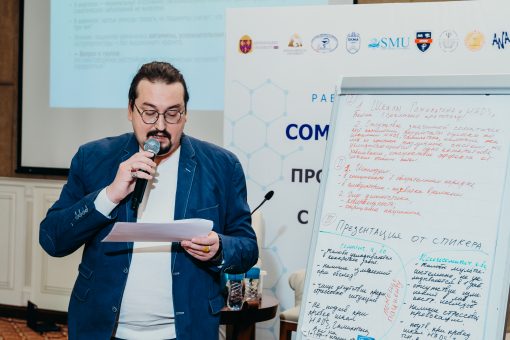

Somatoform disorders are a group of conditions characterized by symptoms of somatic diseases for which no objective organic cause can be identified. People suffering from somatoform disorders tend to report physical ailments and persistently demand medical examinations. They often independently study diseases that have symptoms similar to their own, research sources on the internet, use mass media, and tend to distrust doctors.
Due to their persistent concern and fear of having a progressive illness, most patients have a long history of consultations with various medical specialists, including general practitioners, internists, cardiologists, gastroenterologists, neurologists, etc. However, they are often reluctant to seek help from psychiatrists due to existing stigmas and prejudices. As a result, they undergo multiple examinations that fail to identify a sufficient cause for their symptoms. Despite repeated negative test results and reassurances from doctors that the symptoms are not of physiological origin, affected individuals continue to seek medical consultations. Even normal bodily sensations may be perceived as abnormal and distressing, with patients focusing intensely on monitoring their own bodily functions. Consequently, somatoform disorders are often accompanied by anxiety and symptoms of depression. However, patients rarely report mood disturbances, deny anxious concerns, and may struggle to describe their emotional states.
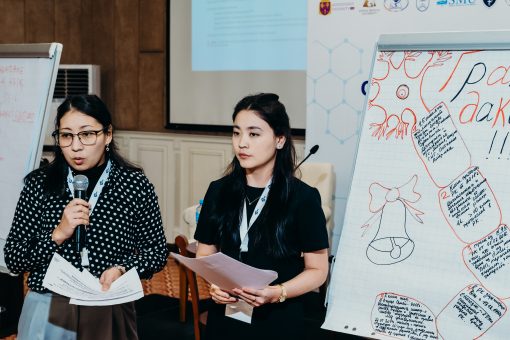
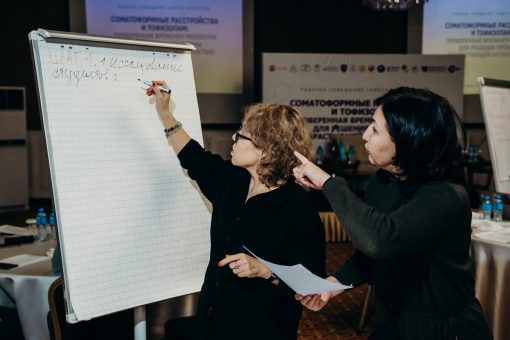
Diagnosing somatoform disorders is highly challenging. Some patients refuse psychotherapeutic assistance, even when recommended by other physicians. In such cases, a significant amount of time may pass before the patient eventually consults a psychotherapist, often with great skepticism.
The moderators of the expert working meeting were prominent figures in psychiatry and neurology:
- Saghat Abylkhairovich Altynbekov, MD, Professor, President of the Association of Mental Health Specialists of the Republic of Kazakhstan
- Yerkin Smagulovich Nurguzhaev, MD, Professor of the Department of Nervous Diseases at the Kazakh National Medical University named after S. D. Asfendiyarov, President of the “Association of Neurologists” of the Republic of Kazakhstan

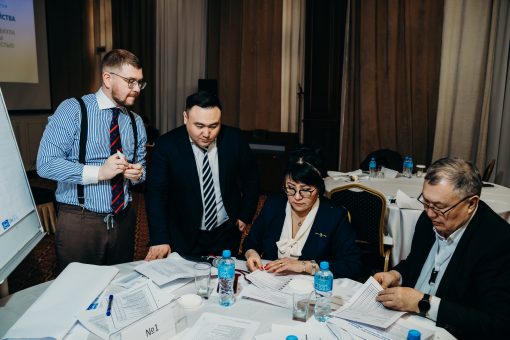
At the beginning of the meeting, all participants were invited to undergo screening using a questionnaire. Leading specialists in psychiatry, neurology, and cardiology from Kazakhstan took part in the event:
- Saghat Abylkhairovich Altynbekov, MD, Professor, President of the Association of Mental Health Specialists of the Republic of Kazakhstan, presented a report titled “Changing the Perspective on Somatoform Disorders: Time to Act.”
- Murat Talapbekovich Baydildaev, Director of the Representative Office of EGIS Pharmaceutical Plant JSC in Kazakhstan, presented data from a pilot study by EGIS on clinical practice in Kazakhstan.
- Natalia Ivanovna Raspopova, Associate Professor at the Kazakhstan-Russian Medical University, MD, and psychiatrist of the highest category, introduced new updates in DSM-5 and ICD-11 terminology and modern views on the pathogenesis of somatoform disorders with her presentation “Somatoform Disorders: What Has Changed Over the Last Decade?”
- Gulnara Aldeshovna Junusbekova, MD, Professor of the Department of Cardiology at KazNMU, Associate Professor, and President of the Society of Specialists in Arterial Hypertension and Cardiovascular Disease Prevention, delivered a presentation titled “Somatoform Disorders: One Problem – Different Manifestations. An Evidence-Based Medicine Perspective on Cardiological Symptoms.”
- Talgat Nurmukhanovich Khaibullin, MD, Professor of the Department of Neurology, Ophthalmology, and Otorhinolaryngology at the State Medical University of Semey, a neurologist of the highest category, gave a highly engaging lecture titled “A Neurologist’s Professional Perspective: Anxiety in General Clinical Practice. Therapy Optimization.”
- Zhibek Alilullayevna Zholdasova, PhD, Head of the Center for the Treatment of Neuroses and Alzheimer’s Disease “United Brain Centre,” psychiatrist, presented the topic “Efficacy and Safety of Tofisopam: A Systematic Review of International Data. The Importance of Clinical Protocols in Kazakhstan.”
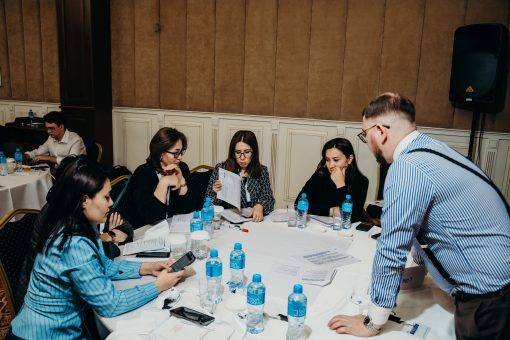
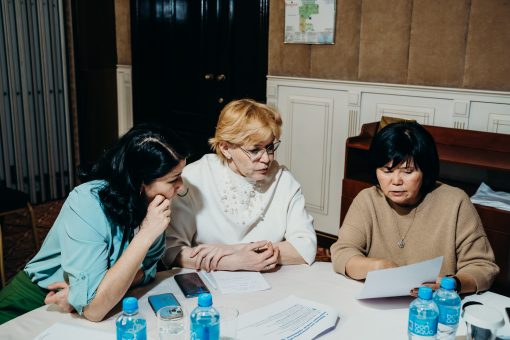
Clinical cases of patients with somatoform disorders were also presented:
- Saule Tleuberkenovna Turuspekova, MD, Professor, Head of the Department of Nervous Diseases at KazNMU, and Chief Neurologist of the Ministry of Health of Kazakhstan, shared a case study from her real clinical practice titled “Tofisopam in Real Practice: A Hospital Experience.”
- Aigul Serikovna Kudaibergenova, Neurologist, PhD, Head of the “Neurology and Neurorehabilitation” Educational Course at the Postgraduate Institute of KRMU, presented “Tofisopam in Real Practice: A Polyclinic Experience.”
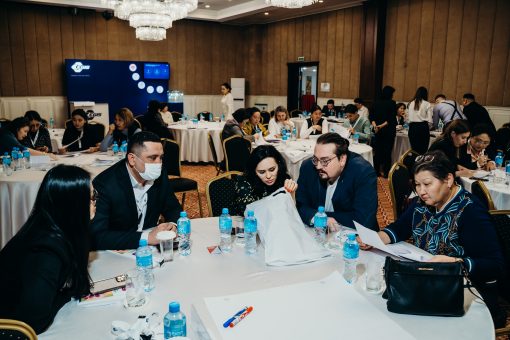

Following this, a strategic session titled “Somatoform Disorders: Clinical Approaches Based on Evidence-Based Medicine Principles” was held in mini-groups, facilitated by:
- Dinara Sagyndykovna Alzhanova, PhD, Associate Professor of the Department of Neurology, MUA
- Elmira Balabekovna Atantaeva, PhD, Associate Professor of the Department of Nervous Diseases, KazNMU
- Nabi Bolatovich Esimov, PhD, MBA, Deputy General Director for Clinical and Scientific Work at the Republican Scientific and Practical Center for Mental Health, Ministry of Health of Kazakhstan
- Saida Zakirovna Yeshimbetova, MD, Professor, Head of the Department of Psychiatry and Addiction Medicine, KRMU
- Nazira Asanovna Zharkinbekova, PhD, Professor, Head of the Department of Neurology, Psychiatry, and Psychology, SKMA
- Elmira Temerzhanovna Jusupova, PhD, Associate Professor of the Department of Psychiatry and Addiction Medicine, KazNMU
- Gulnaz Smagulovna Kaishibayeva, PhD, Director of the Institute of Neurology and Neurorehabilitation named after Smagul Kaishibayev
- Zhannat Makhmutovna Nurmakhanova, PhD, Associate Professor of the Department of General Medical Practice No.1, KazNMU
- Aigul Agabekovna Suleimenova, Head of the Psychosomatic Department at the Republican Scientific and Practical Center for Mental Health, Ministry of Health of Kazakhstan
- Bagyzhan Rysbayevna Syzdykova, PhD, Head of the Multiple Sclerosis and Autoimmune Nervous System Diseases Center, Multidisciplinary State Hospital No.1, Chief Freelance Neurologist of Astana
- Mira Kapsimetovna Tundybayeva, MD, Professor of the Department of Cardiology, KazNMU
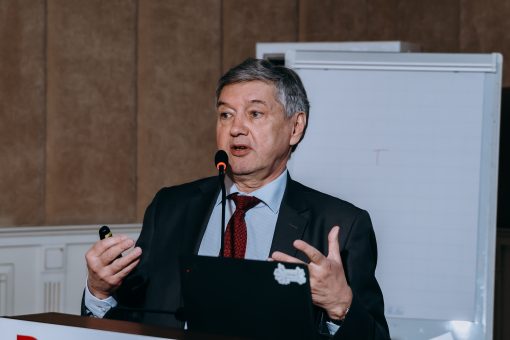

The workshop format allowed for a lively discussion based on an analysis of recommendations and publications, leading to the development of solutions and conclusions. S. T. Turuspekova presented the results of the screening.

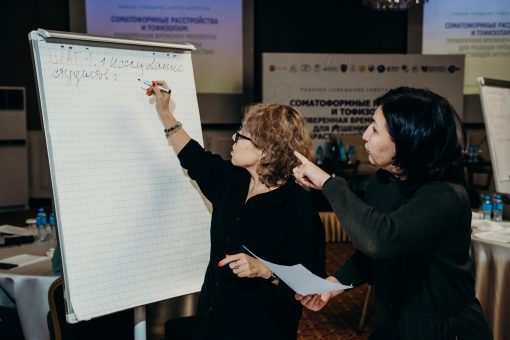
At the conclusion of the expert working meeting, a draft resolution was discussed, proposing key conclusions and recommendations for the management of somatoform disorders, highlighting the role of tofisopam in therapeutic strategies and real clinical practice, and emphasizing the need to update clinical protocols by forming a multidisciplinary working group. Further scientific and educational initiatives were also underscored.
The expert meeting was held with the informational support of EGIS.

